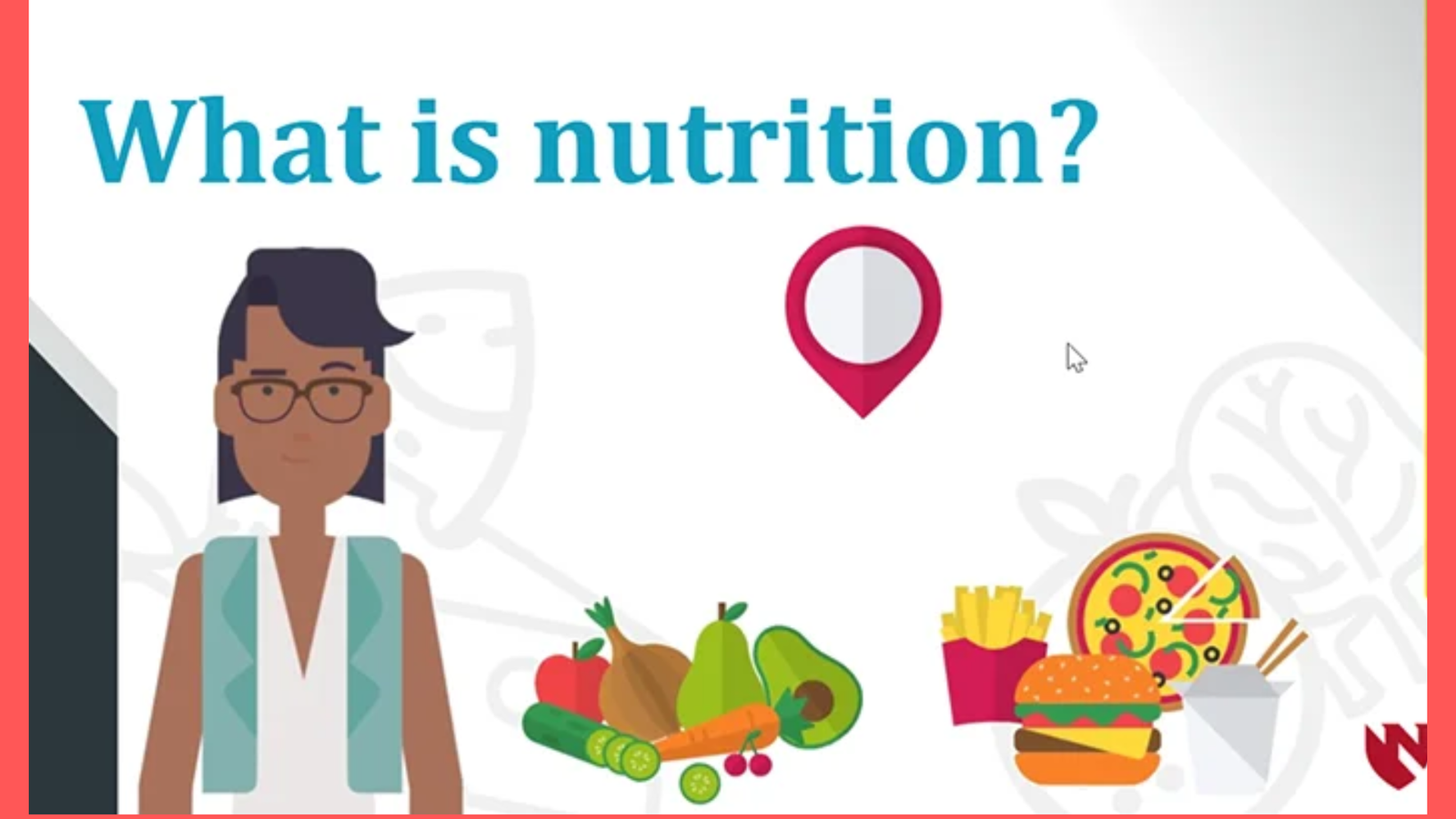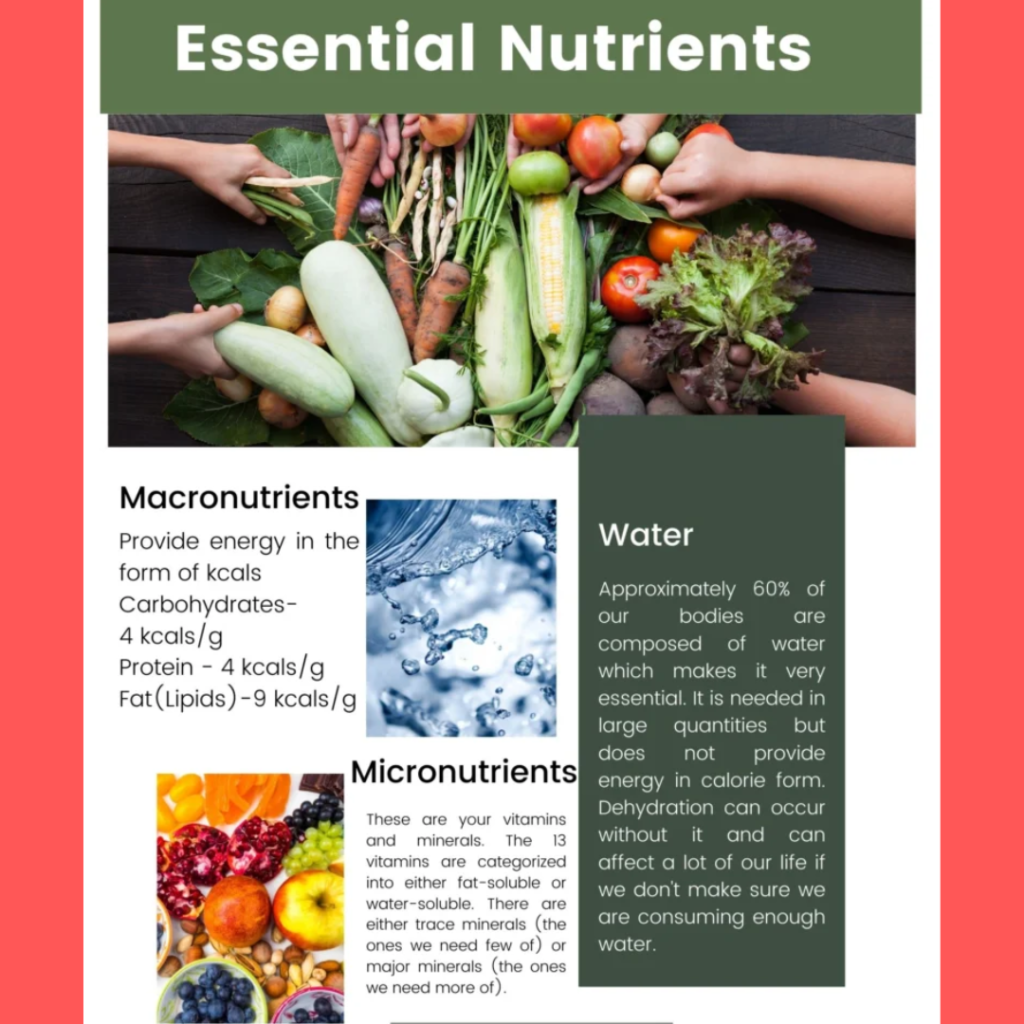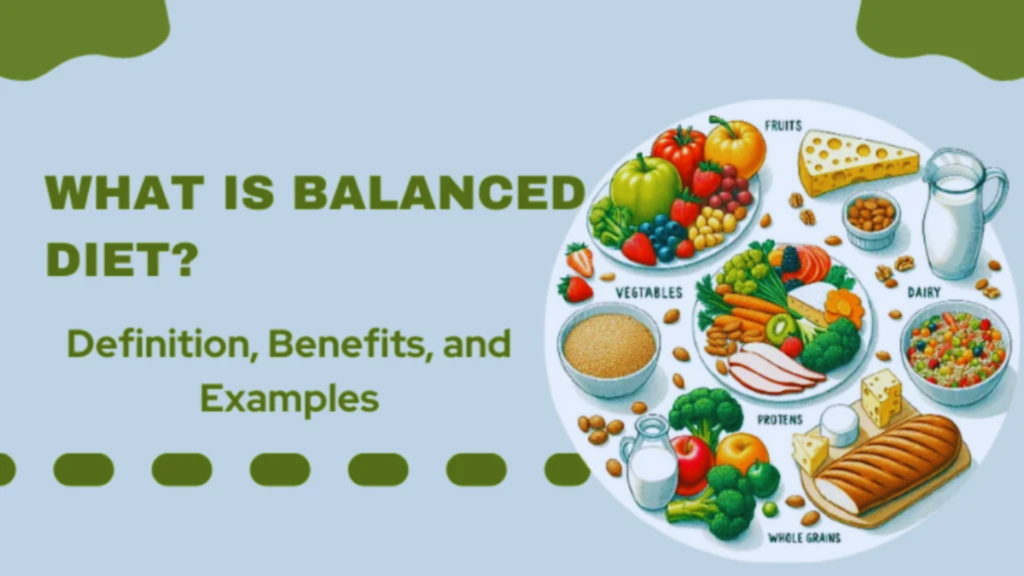
We engage in numerous activities every day. To do these activities, a significant amount of energy is needed. This energy is derived from the food we eat. Food is important for us as it gives us the energy required for repair, growth, and other vital life procedures. All of these fall under the umbrella of nutrition.
A balanced diet that includes all the essential nutrient groups ensures a well-functioning body capable of efficient maintenance and repair. Nutrients are the substances in food that our bodies need to thrive, grow, and reproduce. In this article, I will discuss nutrition definition and other things you need to know about nutrition.
Introduction to Nutrition Definition

Nutrition is basically the procedure of consuming food and transforming it into energy and essential nutrients needed for life. Nutrients are substances that supply the biomolecules and energy necessary for different bodily functions.
Every living organism in the world requires nutrients for growth and proper functioning, but they differ in how they obtain them. Some animals rely on inorganic compounds to fulfill their nutritional needs, while others use complex compounds. The way animals acquire nutrition varies from one species to another.
Nutrition Definition: How Does It Affect Your Health?
You need to know the good nutrition definition for numerous reasons. When key components of a healthy diet are missing or limited, the body can experience particular and potentially serious issues. For instance, not getting enough calcium can lead to spasms and muscle cramps, while a lack of zinc can slow down wound healing.
On the flip side, consuming too much of specific nutrients can cause imbalances, such as excess calcium, which can potentially harm kidney function. Millions of people worldwide are affected by various forms of malnutrition. Knowing nutrition definition is essential for our health and development. Any form of malnutrition poses significant risks to human health.
Nowadays, the world faces a dual challenge of malnutrition, encompassing both obesity and undernutrition, particularly in low- and middle-income nations. Good nutrition directly contributes to healthier mothers, infants, and children, safer pregnancies and childbirth, and stronger immune systems.
It also lowers the risk of non-communicable diseases, such as heart disease and diabetes, while promoting longer life spans. Healthier children tend to learn more effectively, and people with sufficient nutrition are generally more productive. Therefore, the connection between good nutrition, reducing the risk of chronic diseases, maintaining a healthy weight, and overall well-being is too crucial to overlook.
By making healthy eating choices, you ensure your body receives the nutrients it needs to remain strong, active, and healthy. Just like with physical activity, small dietary changes can make a big difference, and it’s easier than you might think!
What Are The Nutrients We Get from Food?

Food provides us with six essential nutrients. They are:
- Fats or Lipids
- Fats play a crucial role in supporting cell growth, storing energy, safeguarding organs, and aiding nutrient absorption in the body.
- Two types of fats are available: saturated fats, often considered “bad,” and unsaturated fats, known as “good.”
- You can find unsaturated fats in salmon, oils, avocados, nuts, seeds, etc.
- Proteins
- Proteins are essential for your body’s growth and development. They also assist your body in regulating hormones, repairing tissues, aiding digestion, and transporting oxygen.
- You can obtain proteins from sources like eggs, legumes (such as lentils, beans, and peas), nuts, meat, seafood, etc.
- Minerals
- Calcium is crucial for building strong teeth and bones.
- Potassium is essential for the proper functioning of your nervous system, kidneys, muscles, and heart.
- Magnesium helps nerves and muscles function and is vital for energy production.
- Sodium plays a key role in muscle and nerve function and helps regulate your body’s fluid balance to prevent swelling.
- Phosphorus supports healthy teeth and bones and is involved in the formation of DNA and RNA.
- Iron is necessary for creating red blood cells, which transport oxygen throughout your body.
- Zinc is important for a well-functioning metabolism and immune system.
- Water
- Water is vital for numerous bodily functions, as about 60% of the human body consists of water. It helps protect the spinal cord, regulate body temperature, lubricates joints, and aids in waste elimination through bowel movements, sweating, and urination.
- Vitamins
- Vitamin A is crucial for immune function, vision, cell division, growth, and reproduction.
- Vitamin D is necessary for building and maintaining healthy bones.
- Vitamin C is essential for forming blood vessels, collagen, cartilage, and muscle. It is also crucial for healing and aids your body in absorbing and storing iron.
- The B vitamins, a group of eight, are involved in a variety of functions, including releasing energy from fats and carbohydrates. They also assist in breaking down proteins and carrying oxygen and other substances throughout the body.
- Vitamin K is important for producing proteins required for bone growth and blood clotting.
- Carbohydrates
- Carbohydrates, often called carbs, serve as a primary energy source. When you consume foods with carbohydrates, your body converts them into glucose, or blood sugar, which your body’s cells use for energy.
- You can find carbohydrates in foods like milk, pasta, bread, potatoes, rice, cereals, sugar, and fruit.
What Steps Can I Take to Maintain a Healthy Diet?

The simplest way to maintain a healthy diet is by eating a balanced diet that meets all your nutritional needs. People need a specific amount of calories and nutrients and to remain healthy. A balanced diet gives these nutrients without exceeding the suggested daily calorie intake.
A nutrition food chart serves as a visual tool that outlines the suggested daily intake of vital nutrients, helping people make informed dietary choices. Consuming a variety of fresh, whole, and unprocessed foods daily helps both children and adults get the right amounts of vital nutrients.
Furthermore, it helps them avoid diets high in salt, oil, sugars, and fats, which can result in unhealthy weight gain and non-communicable diseases. Incorporate a variety of foods into your diet, including staple foods such as cereals like rice, barley, rye, and wheat, as well as starchy tubers and roots like potatoes.
Add legumes such as lentils and beans, along with fruits, vegetables, and animal-based foods like milk, eggs, fish, and meat. Some of the most nutritious foods include salmon, dark chocolate, kale, seaweed, shellfish, garlic, potatoes, egg yolks, liver, sardines, and blueberries. If someone needs a high nutrient intake without extra calories, taking dietary supplements is a good strategy.
The Bottom Line
Nutrition involves obtaining and supplying the body with essential nutrients needed for growth and development. We need nourishment to survive, and nutrients give this to us. These nutrients come from water, food, and other substances we consume. They support bodily functions, growth, and overall health.
Without the right balance and amount of each nutrient from a diverse diet, our bodies cannot function at their best. Nutrition is crucial for development, optimal health, and maintenance. Good nutrition plays a vital role in a healthy lifestyle.
Blended with physical activity, it lowers the risk of chronic diseases, helps us maintain a healthy weight, and enhances our overall well-being. I hope that this article has helped you know about nutrition definition and other important facts about nutrition.
